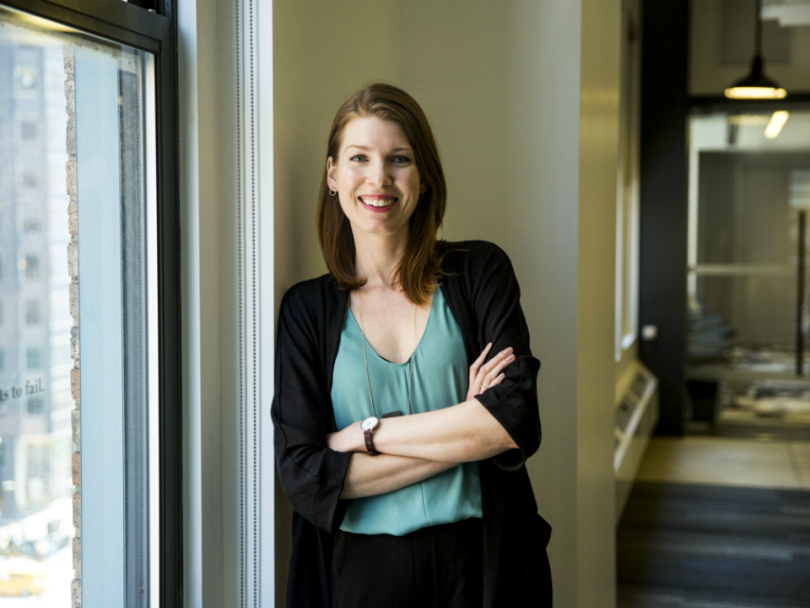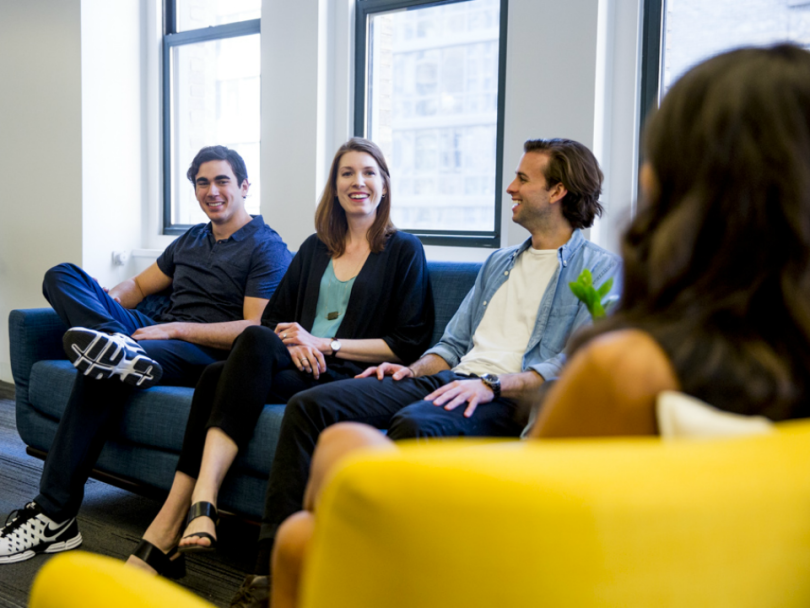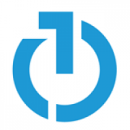The Trade Desk works with some of the top brands and agencies around the world in order to deliver a new class of highly targeted, programmatic advertising. Behind the scenes, the company runs on the strength of great female leaders with true passions for media.



FOUNDED: 2009
EMPLOYEES: 180 in New York City; 850 globally
WHAT THEY DO: The Trade Desk combines big data, cloud technology and global connectivity to give ad-buyers precise control over the advertisements they purchase. The Trade Desk’s platform ensures both maximum efficiency and impact for their clients.
WHERE THEY DO IT: The Trade Desk has 22 locations around the world, including a Ventura, California headquarters, and locations in New York City, Chicago, Paris, Tokyo and more.
WHO THEY HELP: Brands and advertorial agencies seeking to connect with audiences across all devices and media types.


Kathleen Comer, VP, Client Services
Each day, Kathleen leads a team of internationally-based experts whose primary goal is to ensure that The Trade Desk’s clients are getting the maximum value from their partnership with the company. Whether it’s analyzing performance metrics or educating a client on the latest industry trends, Kathleen's team is up to the task.
BEYOND WORK: Kathleen loves spending time outside. She particularly enjoys hiking in the many state and national parks surrounding New York City.
Where did you work before The Trade Desk? How does your previous experience apply to your work today?
My first job in advertising was in national broadcast TV buying at The Martin Agency. There, I learned the fundamentals of media; negotiating media buys on behalf of clients in industry verticals like telecommunications, as well as shipping and logistics. I had an amazing female role model there whose example I’ve always tried to emulate.
Eventually, I wanted more client interaction, so I decided to move on to JWT to take an account management role. I learned a lot there as well — especially about how to work cross-functionally — as I collaborated constantly with our creative team. I also learned to effectively manage client timelines and expectations. Those early years made me a better communicator, colleague and client partner.
What drew you to The Trade Desk?
I still have the email I sent to my dad when I told him I was joining a startup called The Trade Desk. It went something like, "This is an opportunity to build something! To help transform an industry!" He was like, “Will you have health insurance?”
What drew me to The Trade Desk was undoubtedly the opportunity to work with smart and passionate people, to learn how to build and scale a company, and to participate in the incredible transformation of the advertising industry as it becomes more data-driven. That was so exciting to me. It still is exciting, and we still have so much more to do.
What drew me to The Trade Desk was undoubtedly the opportunity to work with smart and passionate people."
What’s the biggest challenge you face as a leader here or in general? How do you overcome it?
I am no stranger to a little demon called imposter syndrome, and I have had many moments where I have doubted myself and questioned whether or not I was capable. When I first started managing people, I'm certain I was terrible. I had no playbook and no idea what I was doing. But I felt a huge responsibility to do right by my team, so I read a lot and asked for help where I needed it. I think it's totally okay to feel vulnerable and to ask for help when you need it. But at a certain point, you need to just say, okay, I'm going in and I'm going to just trust my instincts. I can do this.

What advice would you give to other women who were hoping to grow as leaders in the tech space?
Take advantage of every opportunity, and try to get as much exposure as possible to senior leaders that you admire so that you can learn how they make decisions. Say yes to projects or opportunities that you're not quite sure you're ready for; you will learn from the experience. Take the time to develop real relationships with your peers and colleagues — they are your support system. Most of all, learn how to give yourself a break when you need one. Burnout benefits absolutely no one.
What was the last great book you read or movie you watched? How did it impact you?
I recently read a biography by Edmund Morris called “The Rise of Theodore Roosevelt.” I’ve always been a big national parks fan and I wanted to know more about Teddy Roosevelt. I was totally blown away by his story — particularly his struggles with his health as a child and then with tremendous personal tragedies as a young adult. Teddy Roosevelt has to have been one of the most resilient people who ever lived. He was also someone who just believed in doing the right thing.


Jaclyn Ranere, VP, Global Brand Marketing
Jaclyn and her team work directly with The Trade Desk’s clients — advertisers — to help them understand how the company’s uniquely razor-sharp approach can empower their brand. These conversations take an educational approach, with the marketing team crafting integrated campaigns to flex the platform’s capabilities.
BEYOND WORK: Jaclyn can be found working out with one of New York City’s most renowned fitness gurus, Akin Akman. His hardcore workouts are a reminder that anything is possible.
Where did you work before The Trade Desk? How does that experience apply to your work today?
Prior to The Trade Desk, I worked mostly in entertainment but always focused on digital media. After getting a Film & TV degree from Boston University, I started an artist management, marketing and video production company that was centered around digital music and video. That led me directly into the music business where I spent a decade at a digital distribution company, The Orchard. I worked there right after iTunes launched and was part of the digital transformation of the music industry. It was an unbelievable ride. At The Orchard, I ran an internal marketing/artist services agency and we used The Trade Desk as our advertising platform.
From there I went to Deluxe, a 100-year old film, TV and commercial post-production and distribution company that was being transformed by digital. I decided I wanted to be at a company focused on the future of media — which led me to The Trade Desk!
What made you sure The Trade Desk was the place for you?
There were two items that were ‘must-have’s’ for my next role: a tech-forward company that was focused on the future of media and entertainment, and a company with a culture that felt like a family.
Throughout my career, I’ve had a front-row seat to the shift in media consumption habits. The challenge now for brands and content creators is in reaching consumers who will be interested in what you have to offer. Enter The Trade Desk. As fast as digital is changing our lives, The Trade Desk is releasing new products to help marketers grow their audiences.
I’m part of that large group of people who thinks work should be fun. Work is fun when you’re surrounded by people who care about each other, leave their egos at home and contribute to a shared vision. There are so many moments at The Trade Desk when I stop and smile because I’m so fortunate to be part of this team.
Work is fun when you’re surrounded by people who care about each other, leave their egos at home and contribute to a shared vision."
What’s the biggest challenge you face as a leader here or in general? How do you overcome it?
My biggest challenge as a leader is the feeling that I’m never doing enough. I’m not supporting my team as much as I ought to be. I’m not making enough of an impact. I’m not out in the market as much as I should be.
The first step in overcoming this challenge is to realize that when thinking this way, I’m spiraling down a rabbit hole. There will always be a long list of things that I could be doing and a to-do list that never gets fully checked off. Next, I remind myself of a picture my dad gave me when I was a kid that read “a journey of a thousand miles starts with a single step.” Then, after ruthlessly prioritizing, I let myself off the hook. This frees up the brain space that was focused on the rabbit hole and I now have more capacity to execute.

What advice would you give to other women who were hoping to grow as leaders in the tech space?
Being a leader is about empowering others to do their best work. If you already have your own team, this is the foundation for achieving your goals. But, if you don’t have a team, you can still do the same thing with your peers and your superiors. By this, I don’t mean sitting in the shadows doing all of the work.
From my experience, the more you contribute to the team goals, the bigger challenges you’ll be asked to take on. This could be a critical task for the company, a higher visibility project or taking on managing others, all of which will contribute to your leadership growth. Think of what you want to see in your leaders and emulate those qualities. I value determination, trust, generosity, honesty and courage, and I strive to embody these every day.
What was the last great book you read or movie you watched? How did it impact you?
Black Panther. I’m a sucker for all things Marvel. Aside from being a well-crafted film with beautiful people, the women were badass. The army was female, the technologist sister was female, the love interest is a female spy. It’s empowering.
By showing examples of women who can do everything that men can do (and more — we can have babies), we’ll have a more well-balanced world. More women will aspire to achieve greatness and equality, and more men will see their achievements as the way the world works and want to support them.





